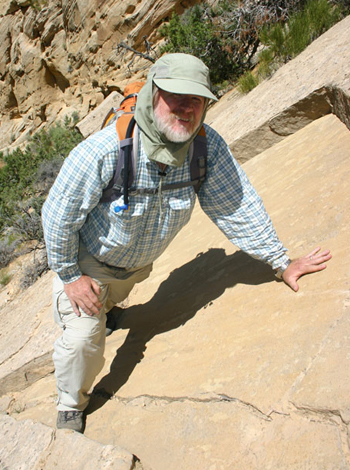 |
George Engelmann, Ph.D. |
The science of dinosaur bones is the focus of the next Omaha Science Cafe on Tuesday, Nov. 5, at 7 p.m. at the Slowdown, 729 N. 14th St.
Paleontologist George Engelmann, Ph.D., will discuss his work dusting off and digging in the Saints and Sinners Quarry at Dinosaur National Monument in Utah.
A professor of geology at the University of Nebraska at Omaha, Dr. Engelmann has had a passionate interest in vertebrate paleontology since his early childhood in Chicago, where he spent many hours at the Field Museum.
Dr. Engelmann received his bachelor’s degree from Principia College in Illinois and earned his doctorate at Columbia University in New York, where he spent most of his time at the American Museum of Natural History poring over the vast collections of fossil vertebrates there.
He came to the department of geography and geology at UNO in 1980, where he teaches courses in geology and conducts research in vertebrate paleontology. Beginning in 1984, Dr. Engelmann has worked on many projects involving fieldwork in and around Dinosaur National Monument in Utah. Over most of this time, the work has involved the late Jurassic period, around 145 million years ago, and the Morrison formation, the rock unit that contains the Carnegie Quarry, the dinosaur quarry for which the monument is famous.
In recent years, his focus has shifted further down the time scale to the late Triassic-early Jurassic period, 190 million years ago and the Nugget Sandstone formation. With persistence, the Nugget has yielded a rich fossil record, especially a bone bed — the Saints and Sinners quarry that is still producing surprises.
Science Cafes involve a face-to-face conversation with a scientist about current science topics. They are open to everyone (21 and older), and take place in casual settings like pubs and coffeehouses. Each meeting is organized around an interesting topic of conversation. A scientist gives a brief presentation followed by a question-and-answer period.
Pizza will be provided by The Nebraska Coalition for Lifesaving Cures for the first 50 people. For more information about Science Cafes, click here.